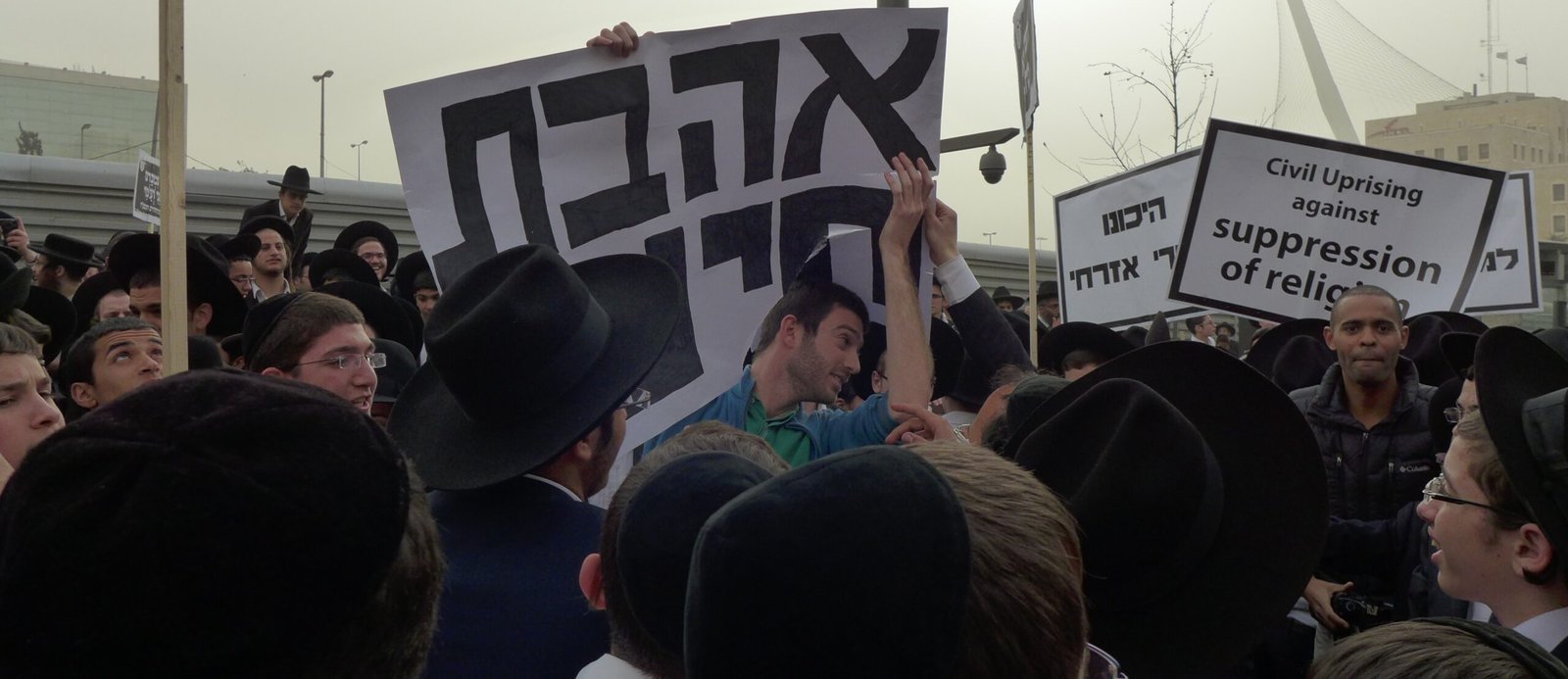Share This Story, Choose Your Platform!
My friend’s New Year’s mail continues: “I mean you once said that the mercy for Germany regarding the Holocaust could be over at some point? I understood this to mean that there is still something open before God for our country, which I personally assume. Have you published anything on that, or rather, do I even remember that correctly?”
First, I think it’s great when someone comes up to me when they don’t know if they understood something correctly or even remembered it correctly. This is how we move forward in dialogue and mutual understanding. Thank you for the feedback! – … especially on such sensitive topics as judgment and mercy, and then also in the context of the Shoah of the Jewish people in the 1930s and 40s, which we commonly refer to as the “Holocaust.”
I have never spoken of there being a “mercy [of God?] for Germany concerning the Holocaust.” However, I have spoken several times of the “mercy of the Holocaust” regarding my German people.
This peculiar term, which is in no way harmless, popped into my head, perhaps as an echo of our former Chancellor Helmut Kohl’s remark about the “Gnade der späten Geburt” – rendered mostly as “mercy of late birth” or even “blessing of late birth.” But I don’t remember exactly. Perhaps this connection is also a fruit of reflecting on my thoughts and words. When Kohl coined this term of the “mercy of late birth” in January 1984, Israel’s ambassador in Bonn at the time, Asher Ben Nathan, said it left a “bad aftertaste.”
The more I think about the “grace of late birth,” how it was talked about, how the saying was understood or also misunderstood, what it expresses, the more the bad aftertaste becomes an acute stomachache with me. I feel similarly about the phenomenon I tried to wrap up with talking of a “mercy of the Holocaust.”
I meant by the “mercy of the Holocaust” that the feeling, the impression, the shock, and also the humiliation that we as Germans experienced as a result of the Holocaust caused us in many ways to make statements, to act, and to adopt attitudes towards the Jewish people and their state of Israel that we would never have entered into without this horrible event, without this tremendous guilt of our nation.
Talking about the “mercy of the Holocaust” I think of German solidarity with Jews when anti-Jewish feelings flare up, a special sense of obligation towards the Jewish state, and above all, that we as Christians – since the Shoah, finally! – seek to dialogue with our Jewish neighbors. Part of this “mercy of the Holocaust” is that Angela Merkel has declared the security of the State of Israel, if I’m not mistaken, to be the raison d’état of the Federal Republic of Germany. In my very own field of expertise, the concept of a “theology after the Holocaust” is part of this phenomenon.
As far as I can remember, I have always spoken with a warning undertone about the “grace of the Holocaust” diminishing, fading away. I cannot help feeling that the shock of confronting Germans with the atrocities of which Germany was capable under Nazi leadership was not able to create a fundamentally new direction in attitudes toward the Jewish people.
How else is it possible that Germany’s representatives in the UN sit at the same table with those whose raison d’état is the destruction of the State of Israel? I cannot explain how the Federal Republic of Germany has positioned itself for decades on the international stage regarding Israel, when our attitude of heart as Germans towards the Jewish people has really changed fundamentally. The fact that the visit of Israel’s Minister of Internal Security to the Temple Mount was harshly criticized, while ignoring the fact that in the Jordanian parliament at the very same time Jews were referred to as descendants of apes and pigs, is only the latest symptom of a prevailing unfortunate, not to say fatal attitude.
We cannot rely on the “mercy of the Holocaust.” We need to put our relationship with the Jewish people and their state of Israel socially, politically, diplomatically on a different basis than guilt or trying to come to terms with the past. That is why I do not want to identify myself with a “theology after the Holocaust,” but strive for a theology that enables a view, creates an atmosphere, shapes a way of thinking in which a Shoah would never have been possible.
Let us never forget: The appeal “Comfort, comfort my people, says your God” (Isaiah 40:1) was issued to gentile believers who call the God of Israel their God already half a millennium before the foundation of the church. It was not until the second half of the 20th century CE that some, relatively few, Christians began to understand these words as their mandate to the Jewish people.
The question of a judgment of God on Germany, I have now completely excluded. I guess I’ll have to ponder that in another article.






















